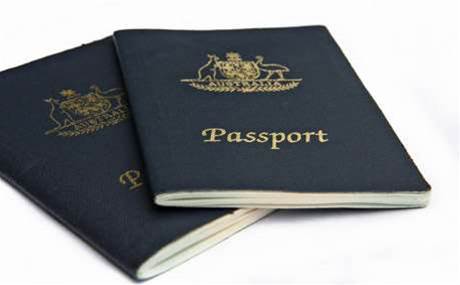Australia is in discussions with New Zealand over the possibility of ditching physical passports and storing the same identifying data electronically instead, Foreign Minister Julie Bishop has confirmed.

The department earlier this year called for suggestions that would transform the agency's operations as part of an "ideas challenge".
So-called "cloud passports" won the judges over and took out the competition.
The proposal would mean travellers do not need to carry a physical passport, and could instead be verified using biometric data, according to the SMH.
It would reduce the 38,000-odd passports that are registered as lost or stolen each year, the department said.
"One of the ideas was turning a passport chip into a purely digital one," Bishop said today.
"It's a form of cloud passport that we're just trialling at present."
She confirmed Australia was in discussions with New Zealand about the novel approach.
Bishop admitted there were security hurdles to cross before the idea could be implemented, especially related to storing citizens' biometric data in the cloud.
"If we're able to put in place the approprirate requirements, including security, then that's something we'd like to trial and implement," she said.
"Australia prides itself on having one of the most secure passports in the world, but by embracing and harnessing new technologies, we might be able to do better."
The department is yet to detail how it plans to address security and data sovereignty concerns.
It is also yet to detail its discussions with nations other than New Zealand on the initiative.
IBRS infosec analyst James Turner said the proposal raised "all sorts" of cyber security questions.
"The big questions around this database of identities will need to focus on data governance," he said.
"Who will be allowed to make changes, how are updates to records authorised, and all the way through, a comprehensive and reliable audit trail will need to be maintained, and protected to the same level as the cloud database. "
He raised concerns about the potential honeypot the database could create for malicious actors.
"Naturally, this cloud repository of identities will be of great interest to nation states keen on creating false identities for their spies," Turner said.
"[The repository] would let a nation state validate if someone was actually who they claimed to be. This could make operations tricky for Australian spooks or undercover officers who want to work under an alias."
Australians have for the last ten years been able to use ePassports, which allow for the automated border processing of travellers.
The passports contain a chip containing the traveller's identifying details which interact with Australia's smart gate technology to allow them to enter and - as of this year - depart without stopping to be checked by a customs officer.
Telstra CEO Andy Penn weighed into the debate, tweeting, "travelling in the clouds with a cloud passport - that's cool - Australia world class technology".
The government earlier this year successfully passed a bill to expand the types of biometric data it collects on Australian citizens, foreigners and minors at the country's airports.

.png&h=140&w=231&c=1&s=0)

.png&h=140&w=231&c=1&s=0)




_page-0001.jpg&w=100&c=1&s=0)

.png&w=120&c=1&s=0) Tech in Gov 2025
Tech in Gov 2025
 Forrester's Technology & Innovation Summit APAC 2025
Forrester's Technology & Innovation Summit APAC 2025
.png&w=120&c=1&s=0) Security Exhibition & Conference 2025
Security Exhibition & Conference 2025
 Integrate Expo 2025
Integrate Expo 2025
 Digital As Usual Cybersecurity Roadshow: Brisbane edition
Digital As Usual Cybersecurity Roadshow: Brisbane edition






.jpg&h=271&w=480&c=1&s=1)




.jpg&h=140&w=231&c=1&s=0)



